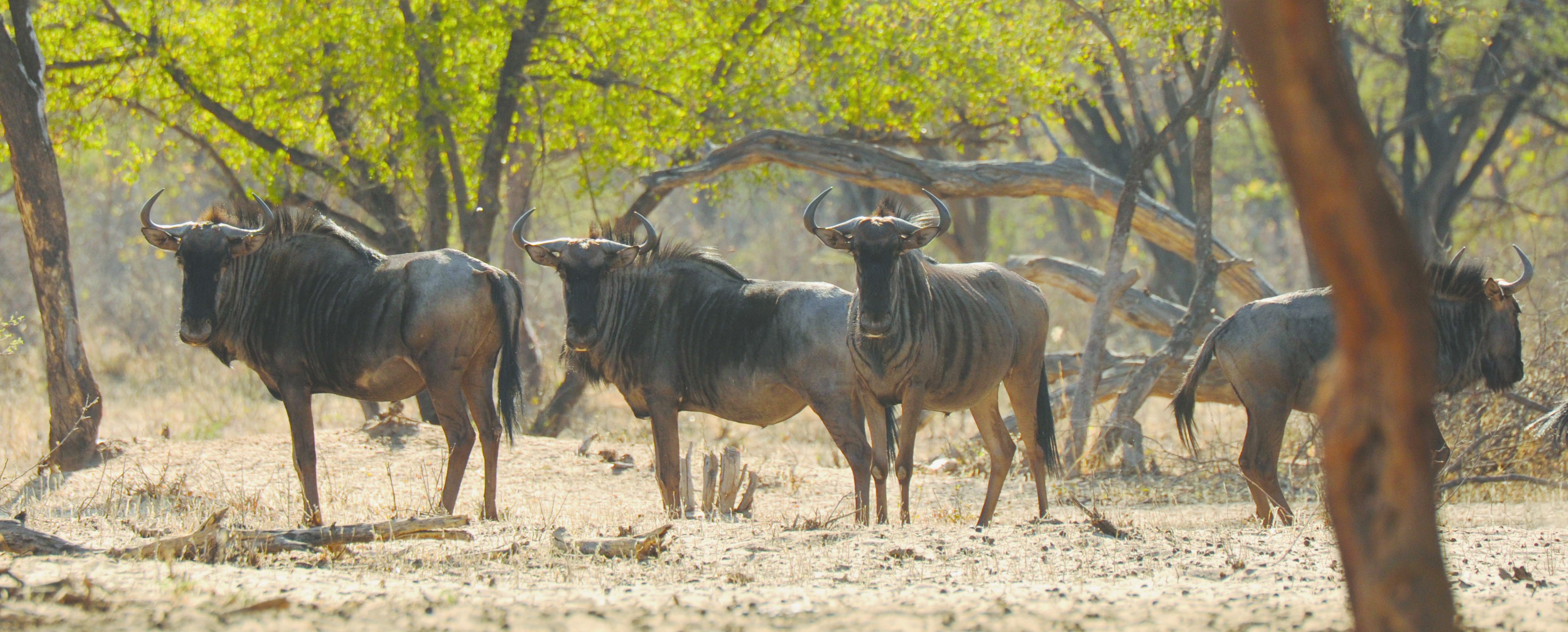
BLUE WILDEBEEST
Cannochaetes taurinus
B lue wildebeest are highly sociable animals and at times congregate in large herds to undertake seasonal migrations, often with other species such as zebra. Old males frequently keep to a territory and lead a solitary life.
Blue wildebeest have virtually disappeared from central Namibia as they can carry diseases that are dangerous to cattle. Nowadays they have a patchy distribution in northern Namibia. They are extremely tough animals and accurate shot placement is essential. It is not that easy to distinguish between the sexes, as the females also have horns. Bulls in general have a deeper curl in their horns. Wildebeest are very curious animals. Once they have become suspicious the hunter should remain motionless, whereupon a bull will often come closer to investigate, thereby offering the chance of a shot.
BLUE WILDEBEEST
Connochaetes taurinus
| Weight: | Male: 200 – 270 kg | Female: 160 – 200 kg |
| Life expectancy: | 18 years |
| Food: | Grazer |
| World record: | 86 cm (Transvaal/South Africa) |
BLUE WILDEBEEST TRACK

